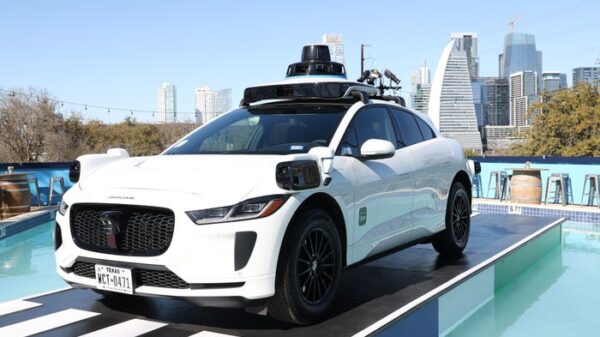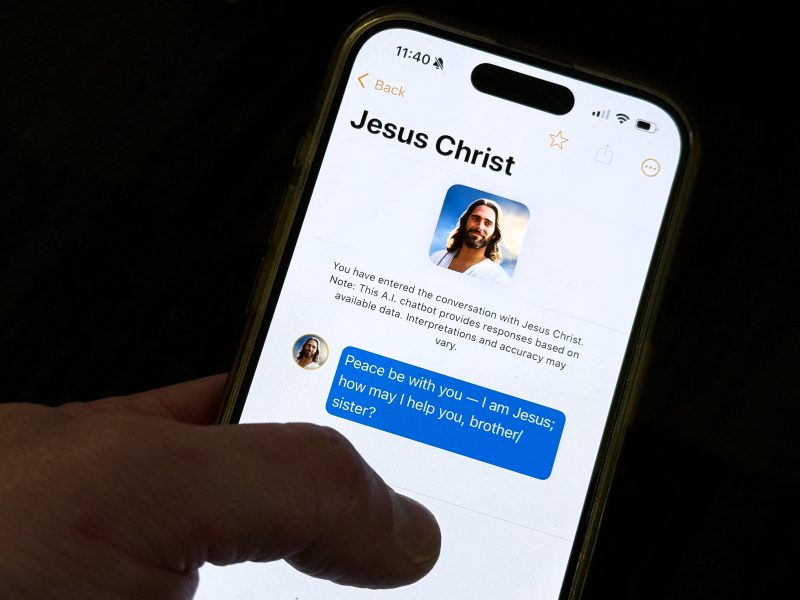UPDATE: AI technology is transforming how individuals seek spiritual guidance, with a surge in popularity for AI chatbots designed to facilitate conversations with God. This trend, fueled by increased interest in “faith tech,” is reshaping the spiritual landscape as people turn to digital platforms for answers to life’s profound questions.
Recent reports reveal that numerous apps featuring AI-driven chatbots are dominating the Apple App Store. Notably, the “Bible chat app” claims the title of “the #1 faith app in the world,” utilizing AI exclusively trained on biblical texts. Meanwhile, Hallow, an app centered around Catholic teachings, briefly became the most downloaded app in 2024.
Emerging platforms like Chatwithgod.ai allow users to communicate “directly” with God, offering responses to various inquiries that span beyond religious contexts. This movement is not limited to Christianity; for instance, a 25-year-old student named Vijay Meel in India utilizes GitaGPT, an AI chatbot modeled on the Bhagavad Gita, to navigate personal challenges stemming from academic pressures.
“People feel disconnected from community, from elders, from temples. For many, talking to an AI about God is a way of reaching for belonging, not just spirituality,” said Holly Walters, an anthropologist at Wellesley College. This sentiment echoes a growing trend where individuals seek solace and connection through technology.
Faith leaders are weighing in on this phenomenon. Rabbi Jonathan Romain, a prominent figure within Britain’s Reform Jewish movement, explained, “There is a whole generation of people who have never been to a church or synagogue. Spiritual apps are their way into faith.” However, some experts caution against relying solely on AI for spiritual guidance.
Heidi Campbell, a professor at Texas A&M University, expressed concerns, stating that chatbots often provide answers that align with users’ expectations rather than offering true spiritual discernment. “It is using data and patterns, not spiritual insights,” she noted.
The Catholic Church is also addressing the implications of AI in spiritual contexts. In January 2025, the Vatican released a document under the guidance of Pope Leo XIV, emphasizing the ethical dilemmas associated with AI advancements. The document asserts,
“When used in ways that respect human dignity and promote the well-being of individuals and communities, it can contribute positively to the human vocation.”
This statement underscores the dual nature of AI’s potential, as it can be both a tool for connection and a source of ethical concerns.
As the “faith tech” sector continues to flourish, experts suggest that the rise of AI chatbots could serve as a bridge for those seeking spiritual engagement. This development is particularly significant given the ongoing disconnect many individuals feel from traditional religious communities.
In a rapidly changing landscape, the question remains: How will AI shape the future of faith and spirituality? As technology evolves, so too will the ways in which we seek meaning and connection. The world watches closely as this trend develops, with the potential for both positive engagement and critical challenges ahead.
Stay tuned for further updates on this urgent and evolving story.





































































